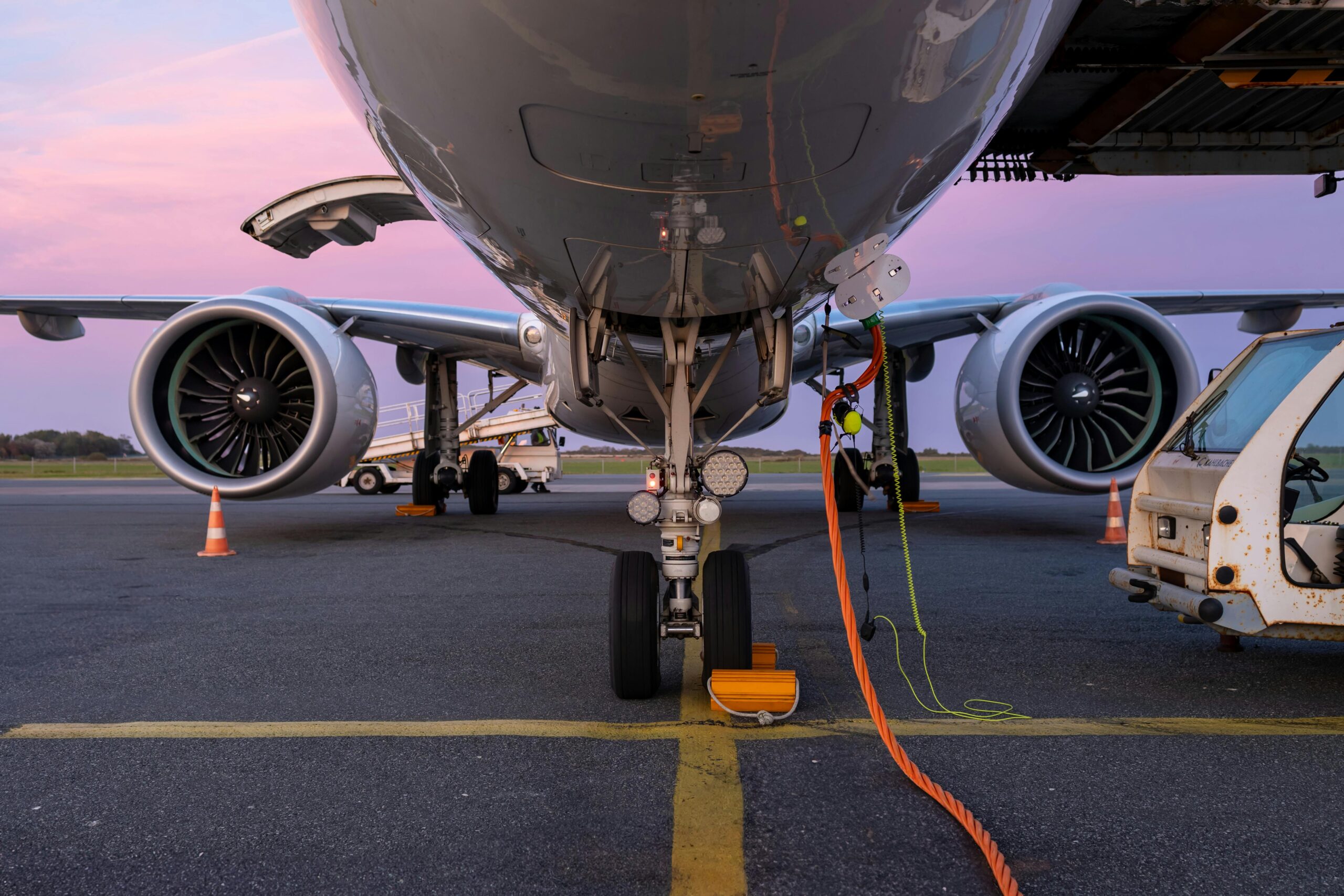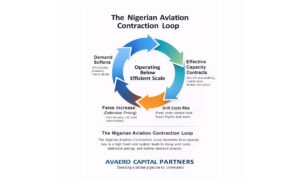How Airline Refund Issues Threaten Customer Loyalty and Africa’s Aviation Future
The online shopping boom has reshaped consumer expectations, and nowhere is this clearer than in the demand for swift, seamless refund processes. A recent YouGov survey of 2,000 online shoppers, conducted for Advanced Supply Chain, revealed a stark reality: 53% of shoppers would abandon a retailer if refunds for returned items are delayed, with 25% deeming a week too long and 27% unwilling to wait ten days. Nearly a third (32%) would actively discourage others from shopping with a slow-refunding retailer, while 27% would post negative reviews online. Yet, the flip side is equally compelling—67% of shoppers are likely to spend their refund with the same retailer if it arrives within two to three days. These findings, while rooted in retail, cast a sharp light on the aviation industry, where refund delays can erode customer trust, damage brand reputation, and invite regulatory scrutiny. For African airlines, operating in a fragmented regulatory landscape despite initiatives like the Yamoussoukro Decision (YD) and the Single African Air Transport Market (SAATM), the stakes are even higher.
The Refund Expectation Gap in Aviation
Airline passengers, much like online shoppers, expect refunds to be prompt and transparent. Delays—whether due to operational inefficiencies, financial constraints, or fraud prevention measures—can sour customer relationships. The YouGov survey’s retail insights are strikingly relevant: just as shoppers demand refunds within days, passengers expect airlines to process refunds for canceled or disrupted flights swiftly. Yet, airline refund delays are a persistent issue globally, often exacerbated by complex booking systems, third-party intermediaries, and cash flow pressures. In 2020, the International Air Transport Association (IATA) reported that airlines worldwide held over $35 billion in unrefunded tickets due to pandemic-related cancellations, with some passengers waiting months for their money. While the situation has improved, delays remain a pain point, particularly for low-cost carriers and airlines in emerging markets.
For aviation professionals and investors, the parallels with retail are instructive. Slow refunds don’t just frustrate customers—they trigger a cascade of consequences. The YouGov data suggests that 20% of shoppers would file formal complaints over refund delays, a trend mirrored in aviation where passengers increasingly turn to social media or legal recourse. In Europe, for instance, EU Regulation 261/2004 mandates airlines to process refunds within seven days for canceled flights, with non-compliance risking fines and compensation claims up to €600 per passenger. A 2023 European Commission report noted that 30% of passengers faced delays beyond this period, prompting regulatory investigations into carriers like Ryanair and Wizz Air. In the U.S., the Department of Transportation’s 2022 refund enforcement actions against airlines like Frontier and Air Canada resulted in over $600 million in penalties for delayed refunds, underscoring the financial and reputational risks.
Global Strategies to Expedite Refunds
Airlines worldwide are deploying strategies to meet these expectations, often borrowing from retail’s playbook. Singapore Airlines, for example, has invested in automated refund systems integrated with its booking platform, processing most refunds within 48 hours. The airline’s 2024 annual report highlighted a 15% increase in customer satisfaction scores tied to faster refund processing. Similarly, Delta Air Lines introduced a “Refund Now” feature in its app, allowing passengers to track refund statuses in real-time, a move akin to ReBound Returns’ emphasis on proactive communication via email or WhatsApp. Delta reported a 10% uptick in repeat bookings from passengers who received refunds within three days, echoing the YouGov finding that speedy refunds drive customer loyalty.
Another innovative approach is refund insurance policies, which mitigate financial risks for both airlines and passengers. Lufthansa offers optional refund insurance at booking, covering cancellations due to personal reasons or airline disruptions. Priced at 5-10% of the ticket cost, this policy ensures passengers receive immediate refunds while Lufthansa offsets losses through insurance payouts. In 2024, Lufthansa reported that 20% of passengers opted for this coverage, generating $50 million in additional revenue while reducing refund-related complaints by 12%. Such policies could be a game-changer for African airlines, where cash flow constraints often delay refunds, but they require robust partnerships with insurers and transparent communication to avoid perceptions of upselling.
Africa’s Unique Challenges and Regulatory Fragmentation
African airlines face a distinct set of challenges, compounded by the slow implementation of the Yamoussoukro Decision (YD) and SAATM. Adopted in 1999 and launched in 2018, respectively, these frameworks aim to liberalize intra-African air transport, enhance connectivity, and harmonize regulations. Yet, as of 2025, 38 of 54 African Union member states have committed to SAATM, representing over 80% of the continent’s aviation market, but implementation remains uneven. A 2022 Aviation Metric report noted that 61% of bilateral air service agreements (BASAs) in Africa are not YD-compliant, restricting competition and inflating costs. This fragmentation extends to consumer protection, including refund policies, leaving passengers vulnerable to inconsistent standards.
Nigeria, a key aviation market, exemplifies these issues. In 2023, the Nigerian Civil Aviation Authority (NCAA) reported that 40% of passenger complaints involved refund delays, with some airlines taking up to 90 days to process refunds. A high-profile case involved one of Nigeria’s largest carriers, which faced backlash in 2024 after passengers waited four months for refunds following flight cancellations during a fuel shortage. Social media amplified the discontent, with negative hashtags trending on X, mirroring the YouGov survey’s finding that 27% of shoppers leave negative reviews for refund delays. Specific challenges in relation to Nigeria’s limit airlines’ ability to refund passengers (to be dealt with in a future insight). These constraints force airlines to delay refunds to preserve liquidity, risking customer trust and regulatory penalties when operating in regulated markets like the EU or U.S.
Other African countries are taking steps to address refund issues. Kenya, a SAATM signatory, has implemented a consumer protection framework under the Kenya Civil Aviation Authority, mandating refunds within 14 days for domestic flights. Ethiopian Airlines, a regional leader, leverages its hub model and strong financial position to process refunds within 10 days, earning it a 4.2/5 customer satisfaction rating on Skytrax in 2024. Senegal, another SAATM participant, has established a dispute resolution mechanism through the African Civil Aviation Commission (AFCAC), allowing passengers to escalate refund complaints, though uptake remains low due to limited awareness.
The Compensation Risk for African Airlines
African airlines departing from regulated markets face significant compensation risks. Under EU 261/2004, passengers on flights departing from or arriving in the EU are entitled to refunds and compensation for delays or cancellations, regardless of the airline’s home country. In 2023, a group of passengers sued RwandAir for €250,000 in compensation after a delayed flight from London to Kigali, highlighting the financial exposure for African carriers. Similarly, South African Airways faced €1.2 million in claims in 2022 for refund delays on EU routes. These cases underscore the need for African airlines to align with global standards, particularly as they expand into international markets.
A Path Forward for Africa
To mitigate refund delays and their commercial fallout, African airlines and policymakers must act decisively. Full implementation of SAATM is critical. The AFCAC’s Pilot Implementation Scheme, involving 20 countries like Nigeria, Kenya, and Ethiopia, is a promising start, but it requires enforcement mechanisms, such as the proposed African Aviation Tribunal, to standardize consumer protections. Airlines should invest in technology to streamline refund processes. Retail’s lesson—per the YouGov survey—is clear: automation and real-time communication boost customer trust. African carriers could adopt platforms like those of Singapore Airlines, tailored to local payment systems like mobile money, which is widely used across the continent.
Refund insurance policies could alleviate financial pressures. Partnering with global insurers, as Lufthansa does, could enable African airlines offer immediate refunds while managing cash flow risks. Governments must also address structural barriers, such as foreign exchange shortages and high operational costs (17% higher fuel prices and 6-10% higher maintenance costs, per IATA). Nigeria’s recent move to release $100 million in blocked funds in 2025 is a step forward, but how much blocked funds affect indigenous airlines ability to access their funds which also might be tied up limiting their own cashflow, needs sustained action.
For aviation professionals, policymakers, and investors, the message is clear: refund delays are not just a customer service issue—they’re a strategic liability. The YouGov survey’s retail insights highlight the universal demand for speed and transparency, a standard airlines must meet to retain loyalty and avoid regulatory penalties. African carriers, constrained by fragmented regulations and economic challenges, face heightened risks but also unique opportunities. By embracing SAATM, investing in technology, and exploring refund insurance, airlines can turn refunds into a competitive advantage. As Africa’s aviation market grows—projected to double by 2043, per IATA—the ability to deliver prompt refunds will distinguish market leaders from laggards.
About the Author
Sindy Foster is Principal Managing Partner at Avaero Capital Partners, an aviation advisory firm focused on strategy, economics and operating performance across African and emerging aviation markets.
Her work centres on the structural drivers of airline performance — including capacity, pricing, operational resilience and system design. She advises airlines, investors and public-sector stakeholders on translating operating constraints into sustainable commercial outcomes.
Disclaimer: The insights in this article are for informational purposes only and do not constitute strategic advice. Aviation markets and circumstances vary, and decisions should be based on your organization’s specific context. For tailored consultancy, contact info@avaerocapital.com.




